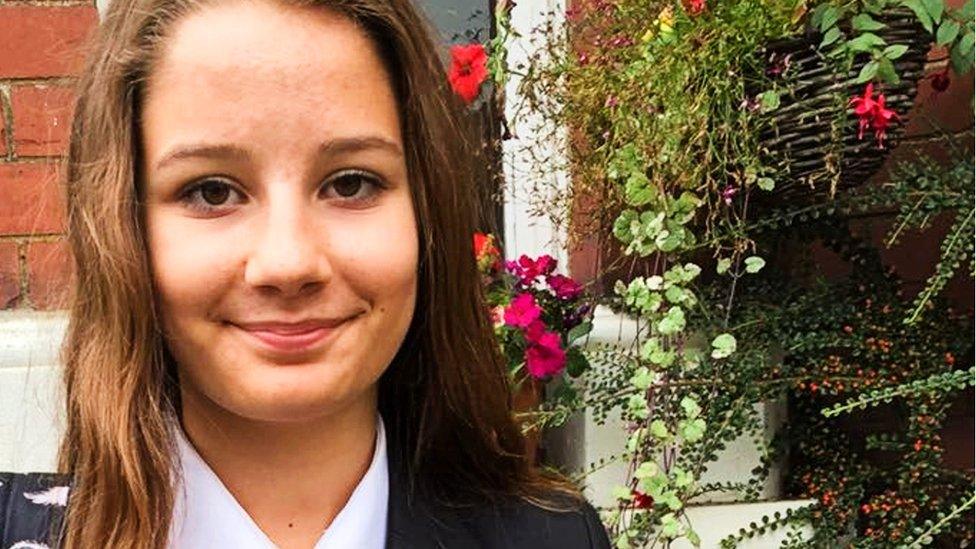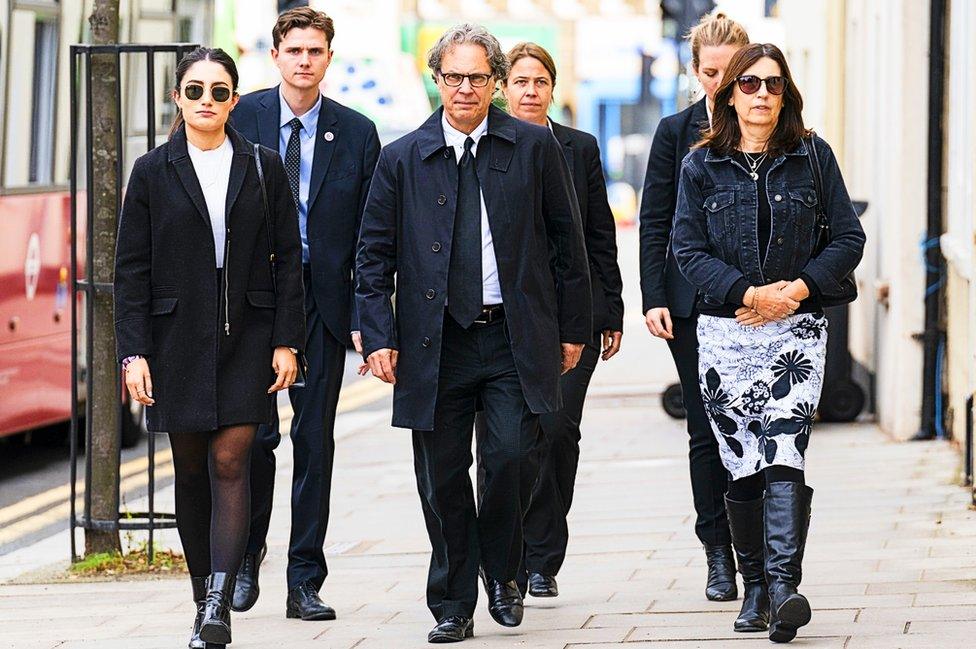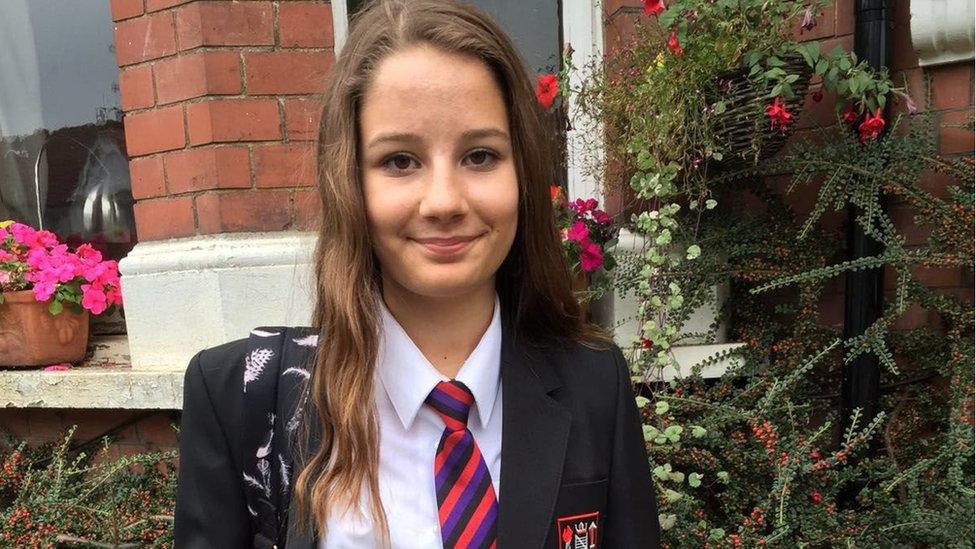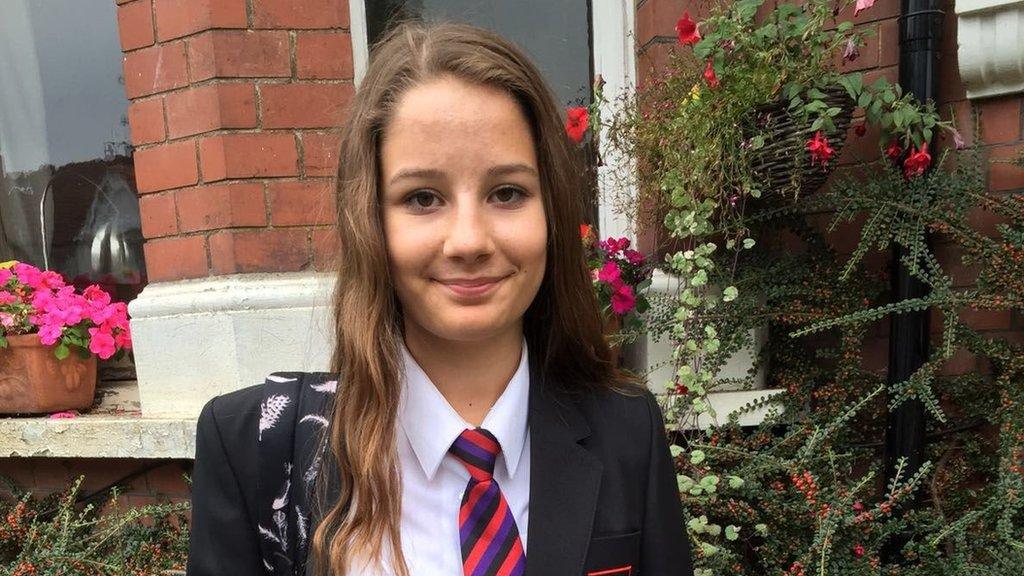Molly Russell: Social media causes no end of issues, head says
- Published

Molly Russell's father previously told the court she had entered the "bleakest of worlds" online before her death
Social media causes "no end of issues" as it is "almost impossible to keep track of", the headteacher of Molly Russell's school has told an inquest.
The 14-year-old, from Harrow, viewed thousands of such posts in the months before she took her own life in 2017.
Sue Maguire told North London Coroner's Court social media had challenges that did not exist 10 or 15 years ago.
She said Hatch End High School had warned students about the "dangers of social media for a long time".
Giving evidence, Ms Maguire said: "Our experience of young people is that social media plays a huge, dominant role in their lives and it causes no end of issues.
"There's a level where I want to say it's almost impossible to keep track of social media, but we have to try and we have to respond to the information as we receive it."

Molly Russell's father Ian Russell (centre), mother Janet Russell (right) and her sister (left) arrive at Barnet Coroner's Court
The inquest was told that out of the 16,300 posts Molly saved, shared or liked on Instagram in the six months before her death, 2,100 were depression, self-harm or suicide-related.
Ms Maguire said staff were shocked when they became aware of the graphic content available to students like Molly on sites such as Instagram.
Deputy headteacher Rebecca Cozens, who is also head of safeguarding at the school, told the inquest that once young people had gone "down the rabbit hole" on social media, it was a "deep one".
Coroner Andrew Walker told the Russell family he would be delivering his conclusions by the end of the week.
So far, the inquest has heard from Molly's father, Ian Russell, who said he had been shocked by the "dark, graphic, harmful material" available for children to view online.
Last week, Pinterest's global head of community operations, Judson Hoffman, was asked by the family's barrister if the platform accepted that in 2017, when Molly was using it, it "wasn't safe", and Mr Hoffman replied: "That's correct." Mr Hoffman also told the inquest he deeply regretted that Molly saw content relating to self-harm, suicide and depression on the platform.
This week, Elizabeth Lagone, an executive at Meta, which owns Instagram, said she believed it was "safe for people to be able to express themselves" online.
Child psychiatrist Dr Navin Venugopal also told the hearing he was "not able to sleep well" after seeing "very disturbing" self-harm material viewed on social media by Molly.
The inquest continues.
If you've been affected by self-harm or emotional distress, help and support is available via the BBC Action Line.

Follow BBC London on Facebook, external, Twitter , externaland Instagram, external. Send your story ideas to hellobbclondon@bbc.co.uk, external
Related topics
- Published27 September 2022

- Published26 September 2022

- Published23 September 2022

- Published22 September 2022

- Published21 September 2022

- Published20 September 2022

- Published2 September 2022

- Published6 February 2019
